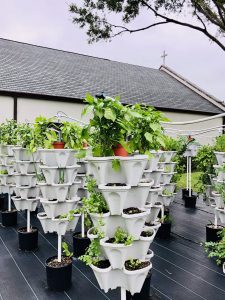Hydroponic gardening is a method of growing plants without soil. Instead, the plants are grown in a nutrient-rich water solution. This gardening method has become increasingly popular due to its numerous benefits. However, like any other gardening method, hydroponic gardening has pros and cons. In this article, we will discuss the advantages and disadvantages of hydroponic gardening to help you decide if this method suits you.

Introduction to Hydroponic Gardening
Hydroponic gardening is a method of growing plants without soil. Instead, the plants are grown in a nutrient-rich water solution. This gardening method has become increasingly popular due to its numerous benefits.
The Pros of Hydroponic Gardening
No Soil Required
One of the most significant advantages of hydroponic gardening is that it does not require soil. This makes it an ideal option for those who live in areas with poor soil quality or limited space.
More Control Over Growing Conditions
Hydroponic gardening gives you much more control over the growing conditions of your plants. You can control the temperature, light, water levels, and nutrients your plants receive. This control allows you to grow plants that are healthier and more productive than they would be in the soil.
High Yields
Hydroponic gardening often results in higher yields than traditional soil-based gardening. This is due to the controlled growing conditions and the ability to grow plants in a smaller space.
Pest and Disease Resistance
Another advantage of hydroponic gardening is that it can reduce the risk of pests and diseases. Since the plants are grown in a controlled environment, keeping pests and diseases at bay is easier.
The Cons of Hydroponic Gardening
High Initial Cost
One of the most significant disadvantages of hydroponic gardening is the high initial cost. The equipment and setup required can be expensive, especially if starting from scratch.
Requires Constant Monitoring
Hydroponic gardening requires constant monitoring to ensure the plants receive the right amount of nutrients and water. This can be time-consuming and requires a certain level of technical knowledge.
Dependence on Power and Water Supply
Hydroponic gardening is dependent on a constant power and water supply. Your plants may be at risk if there is a power outage or water shortage.
Limited Plant Selection
Finally, hydroponic gardening may limit your plant selection. Some plants are better suited to hydroponic growing than others, so it is essential to choose your plants carefully.
Conclusion
Hydroponic gardening is a method of growing plants without soil. It has several benefits, including no soil required, more control over growing conditions, high yields, and pest and disease resistance. However, it also has its drawbacks, including a high initial cost, the need for constant monitoring, dependence on power and water supply, and limited plant selection.
FAQs
What is hydroponic gardening?
Hydroponic gardening uses a nutrient-rich water solution to grow plants without soil.
Does hydroponic gardening require soil?
No, hydroponic gardening does not require soil. The plants are grown in a nutrient-rich water solution instead.
Can hydroponic gardening result in higher yields than traditional soil-based gardening?
Hydroponic gardening can yield higher yields than traditional soil-based gardening due to the controlled growing conditions and the ability to grow plants in a smaller space.
Is hydroponic gardening more susceptible to pests and diseases?
No, hydroponic gardening can reduce the risk of pests and diseases because the plants are grown in a controlled environment.
Is hydroponic gardening expensive?
Hydroponic gardening can have a high initial cost due to the equipment and setup required. However, it may save you money on water and fertilizer in the long run compared to traditional soil-based gardening.


